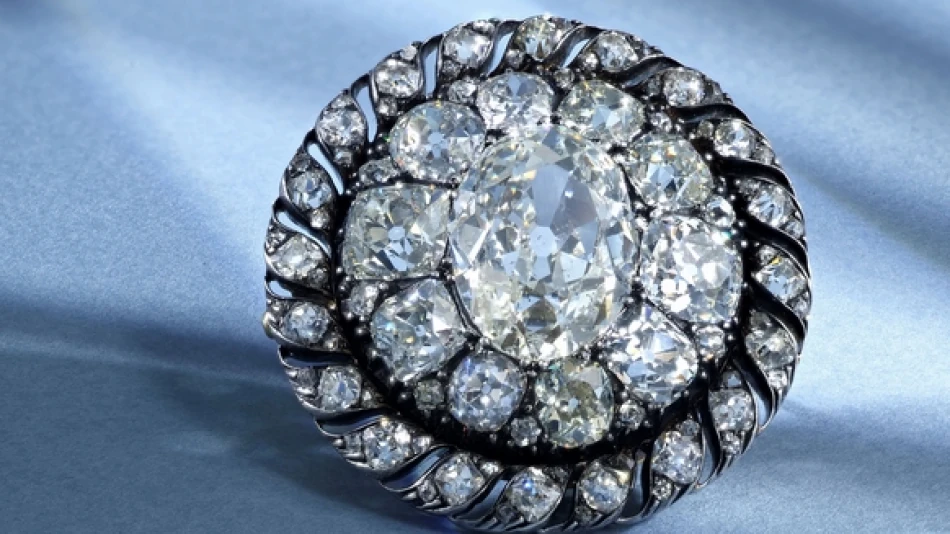
Rare Napoleon Bonaparte Brooch Auctioned in Dazzling Showcase
A diamond brooch once owned by Napoleon Bonaparte—reportedly salvaged from the chaos of his defeat at Waterloo—will go up for auction for the first time this November. The piece, which Napoleon allegedly left behind during his hasty retreat from the battlefield in 1815, has remained in the hands of the victorious Prussian royal family for over two centuries.
Sotheby's Geneva will auction the brooch on November 12 as part of their "Royal and Noble Jewels" sale. The circular piece features a central oval diamond weighing more than 13 carats, surrounded by around 100 diamonds of varying shapes and sizes. Made in Paris around 1810, it likely adorned Napoleon's hat during special occasions.
The brooch tells a story that goes beyond its craftsmanship. When Napoleon fled Waterloo after his crushing defeat, he left behind more than just his imperial ambitions. Personal items scattered in the retreat became trophies for the victorious coalition forces. This particular piece ended up with the Prussian king's descendants, who kept it as a family heirloom for generations.
Sotheby's expects the brooch to sell for between $150,000 and $250,000. While that might seem modest for a piece with such historical weight, Napoleon memorabilia has always attracted a specific collector base. Items directly linked to pivotal moments in his career—especially Waterloo—carry particular significance.
The timing of this auction is interesting. Napoleon-related artifacts have seen steady interest from collectors, particularly pieces that can be traced to specific historical events. Waterloo items are especially rare since most personal effects from that chaotic retreat were either lost or destroyed.
For collectors, this brooch represents a tangible connection to one of history's most decisive battles. It's not just jewelry—it's a piece that witnessed the end of an empire and the reshaping of Europe. That historical context often drives prices beyond the intrinsic value of the materials themselves.
Most Viewed News

 Layla Al Mansoori
Layla Al Mansoori






